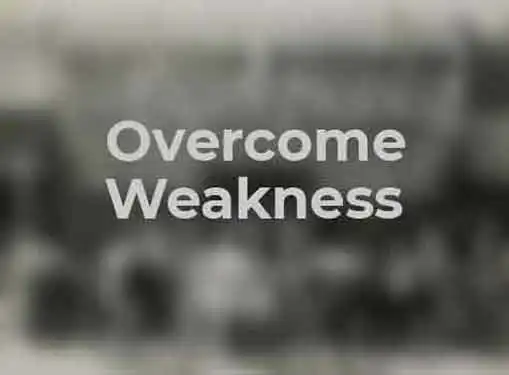Starting a Company
How to Overcome Business Weaknesses
Written by Anne Hauser for Gaebler Ventures
The common ways businesses fail can be overcome with advice on how to avoid common new business mistakes.
According to the Small Business Administration (SBA) 2006 statistics, two-thirds of new small businesses survive for at least two years, and 44 percent for at least four years.

These odds are better than the old lore that 50 percent of businesses fail within their first year.
Still, the numbers are pretty staggering, seeing as the SBA also says that about half of private-company employees are employed by small business owners.
Small businesses are innovative as well. The SBA says small businesses produce 13 more patents per employee than larger companies. So if they are so breakthrough in their concepts, why do many still fail to succeed? The SBA offers some clarity on why small businesses fail:
- Lack of experience. Not everyone is cut out to be an entrepreneur. Analyze the strength and weaknesses of starting your own business. It is important for business owners to be self-starters who are good at planning, organizing, and making decisions that can benefit their business in the long-term. It is also important to choose the right business for you; which may not be the most profitable, but the one in which you have the most interest and skill sets. Network with other more experienced business owners online and in your community to obtain feedback on how you can start and maintain a successful enterprise.
- Poor business location. Knowing your target consumers will help you identify where to best market your products and services.
- Insufficient capital. Many entrepreneurs are not aware exactly how much they need for start-up capital-- and how long it will take before their business turns a steady profit. Do your research and plan ahead to identify areas where your business may fall short. Investigate possible funding sources, such as venture capitalists.
- Poor credit arrangements. A comprehensive business plan will help eliminate poor credit arrangements.
- Poor inventory management. Keep updated and accurate inventory records to avoid future problems.
- Unexpected growth. Although it is often hard to predict the future economy, come up with a plan for what to do in both positive and negative situations. Consider consulting companies that specialize in helping businesses deal with situations involving unexpected growth.
The reasons to become an entrepreneur can outnumber its pitfalls if you avoid some of the aforementioned mistakes. You are your own boss, so your hard work and innovative ideas directly benefit you. There is also great earning and growth potential, and the endless challenges and opportunities that small businesses provide almost guarantee that you will never be bored.
Anne Hauser is a freelance writer who is currently a double major in Magazine Journalism and English at the University of Missouri.
Share this article
Additional Resources for Entrepreneurs



Conversation Board
Got something to say about why small businesses fail and how to avoid small business failure? Leave a comment below. Thanks!